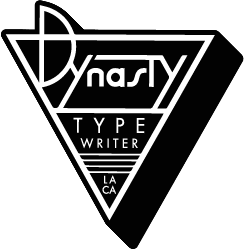Go Day — Show Notes
Every month, Dynasty Typewriter invites members of our creative community down to the theatre to give talks on what excites and inspires them. This Month’s featured speakers include Catherine Coan — Hybrid Taxidermist, Artist, Poet, Professor, Brent Forrester — Writer + Showrunner (The Simpsons, Love, The Office), Jonathan Kidder — Creator, Artist, Intuitive, Bruce Ferber — Showrunner (Home Improvement, Coach) And was hosted by our artistic directors Vanessa Ragland + Jamie Flam — Artistic Directors (Dynasty Typewriter)
SHOW NOTES
Catherine Coan
a. Collaborate
b. Doesn’t matter how old you are, just get started
c. People like people who are into stuff
4. Jonathan Kidder - Living as a Psychic Bird:
a. It’s cool saying the “Universe”
b. Never underestimate a psychic puppeteer
c. Don’t be afraid to let your magic out – even if it’s scary
d. Root chakra is your connection with your tribe
e. Know your tribe – the people who allow you to be yourself
f. 2nd chakra – sexual center
g. Callings – finding and following an authentic life – book recommendation
h. Heart Chakra
i. “LIKE-ME-ITIS”
j. “Tell the Llama”
k. Throat chakra – every chakra is a power center
l. Manage your choices between the head and the heart
m. Jonathan likes cabernet sauvignon and sauvignon blanc for parties
n. Gratitude is the antidote for fear
o. Before you go to bed, ask yourself: “Why was today the best day ever?”
p. RESOURCES:
· Kidderco.com – his website
· Kiddervibes on Instagram for adults
· Possibilitopia on Instagram for kids
5. Jamie’s Mom, Vikki Flam:
a. “If you can take the leap, I can take the leap”
b. Never too late to become what you might have been
c. “Go-Day is not bullshit”
6. Bruce Ferber @ferberama with Brent Forresster:
a. On “Breaking in” – took time to write – wrote spec scripts – sent out his first spec script
b. Not knowing what you’re doing can be an advantage – don’t compare yourself to
everyone else and “the way it’s done”
c. On TV shows - you’re a mimic when you write on a show – study what they do and sound like them – the only part that is you is the way in which you present the story knowing who the characters are
d. Nowadays – Have 1 original pilot and 1 spec - the market is saturated by original content
– the spec script demonstrates your discipline to work within another writer’s vision and your ability to “meet deadlines”
e. How a person works in a group is vital
f. Q: What if you’re not funny in the room? A: The loudest one isn’t necessarily the funny one
g. (Em’s personal tangent after Brent talked about hanging out next to the “quiet ones” to amplify their suggestions – Wondered if amplifying is what SOME men intend when they repeat your suggestion in meetings – maybe, but then they’d make sure to give you credit if that was the case)
h. The secret of story writing – a story is usually about two people – take two characters and put them at war with each other – arcing it out always helps the story telling
i. Email with 15 minute segments
j. Highly personal storytelling is an effective way to go (Apatow) - Brent wrote a blossom script – so he used his own sibling relationship as the reality in which the scene was rooted.
k. What makes a show hugely successful like "Home Improvement?" - A likable star, originality, and hitting a cultural “moment” just right
l. “A little lox goes a long way”
m. Getting started on your own - “when your’re playing tennis there are two people on the court, the guy hitting the ball and the guy in your head telling you that you suck” – try to remember to not pick on yourself – If you get something down it will get better
o. A lot is discipline and a lot is getting to the point where you like yourself
p. RESOURCES:
· Elevating Overman by Bruce Ferber
· The War of Art (suggested by Brent)
· Zen and the Art of Tennis (from Bruce)
· The Way We Work – On the Job In Hollywood – anthology by Bruce Ferber
7. Brent Forrester:
a. It’s okay to write about things and people you don’t know about – research and write, you must to grow – write journalistically – if you find that courage you can eliminate the competition
b. Always encourage people to make art – as long as you are encouraging them to do it therapeutically – (as if you are in therapy) – and autobiographically
c. Do a vomit pass to overcome a minor block – (Em only - limit your feedback – it may be stopping you – first get some shit on paper)
d. Put together a look book for your show – what is the pilot story in the first episode – write it as a treatment –– 4 or 5 pages of prose treatment is fine, as if you're telling it out loud – you won’t sell anything off a description of the series
e. When you have something personal that you want to share – you’re in the realm of great art
f. Have a friend who’s also a writer for 1) accountability and 2) to remind yourself that what you’re writing about is interesting to other people
g. If you have $200 – you can put on your own show
h. Find a class and do it
i. RESOURCES:
· USC Comedy school?
· In Santa Monica, the UnUrban Café will let you do a one person show
8. Wrap up:
a. The coffee is worth it.

